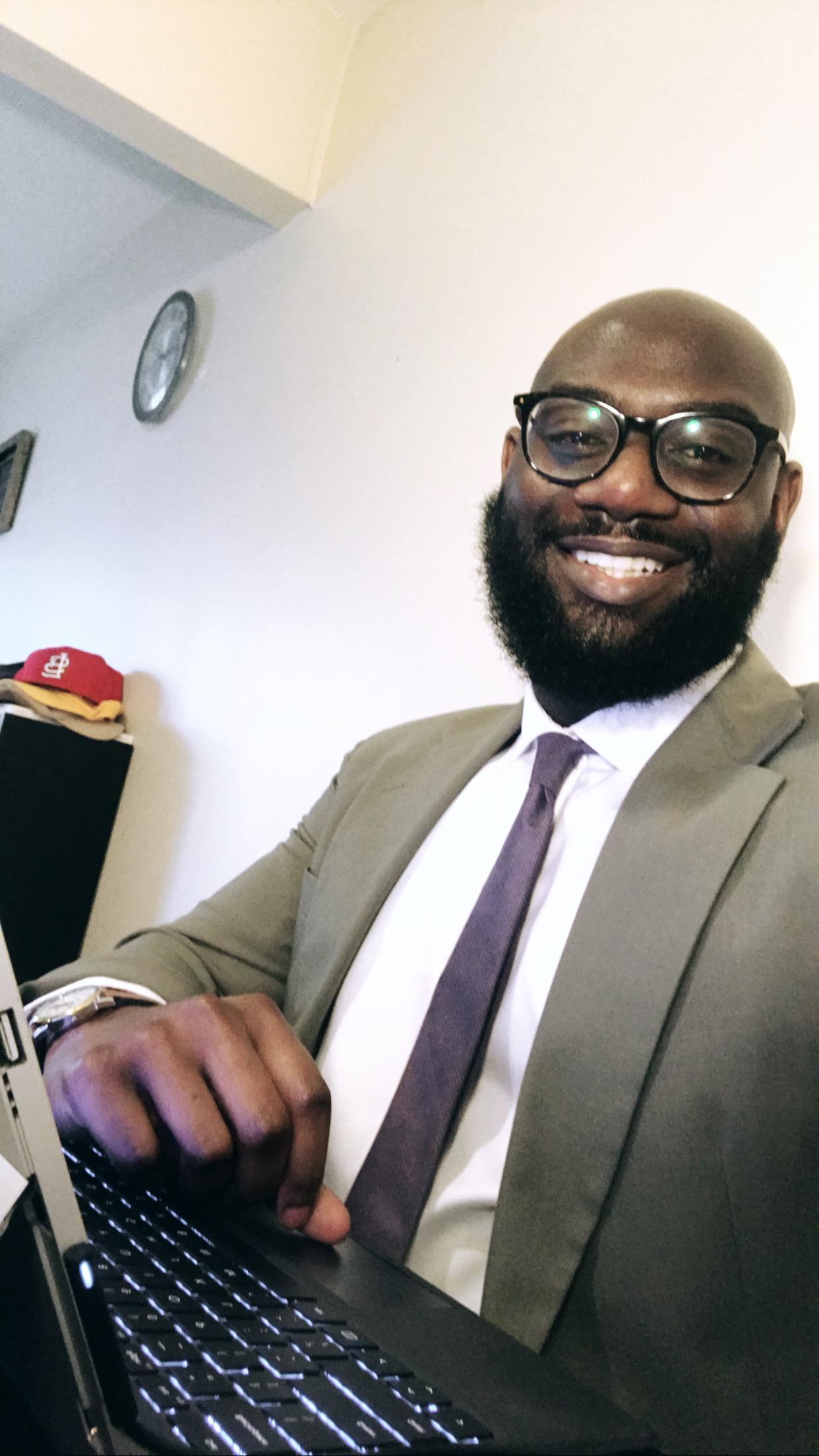By Richard LeComte
 Myles D. Moody, now the holder of a doctorate from the University of Kentucky, has been giving his knowledge back to students through the SPARK program – an effort to train undergraduates from under-represented backgrounds in sociological research.
Myles D. Moody, now the holder of a doctorate from the University of Kentucky, has been giving his knowledge back to students through the SPARK program – an effort to train undergraduates from under-represented backgrounds in sociological research.
“I’m passionate about research and I really wanted the opportunity to transfer those skills and knowledge to younger folks,” said Moody, who earned his doctorate in sociology in UK’s College of Arts & Sciences. “It’s been very rewarding for me. I love seeing light bulbs go off. And it even reinforces some things for me. It’s been great in that regard.”
Moody was a first-generation doctoral student in the Sociology Department and a research assistant at the new Center for Health Equity Transformation at UK. In the SPARK program, he led undergrads through the process of getting research on human subjects approved and then carrying out the projects to promote heath equity in their communities. For example, a student looked into exercise activity in her Appalachian hometown.
“She got the chance to distribute surveys, and she found that there was a lack of opportunity for exercise, including gyms – just physical activity in general,” he said. “So she’s helping to promote more ways for the public to get active.”
The SPARK program is just one area where Moody has contributed to the study of health equity and the sociology of medicine. For his dissertation, he used stress theory and the race-related stress framework to consider how vicarious discrimination experiences affect the mental health of Black American adults in a community sample.
“We’re seeing a lot of discriminatory experiences reported in the news, and we wanted to see how that is affecting our mental health,” Moody said. “But when I went to the literature to see what kind of evidence there was, there was a huge gap – there’s a dearth of literature about vicarious discrimination impacting folks’ health.”
He argues that previous work may have underestimated the full toll of the whole race-related stress experience by solely focusing on the individual’s personal experiences without considering them as potentially vulnerable to indirect experiences of racism.
“That’s largely due to the fact that when researchers put their surveys together, they would only include questions such as, ‘Have you ever been unfairly fired from a job or denied a promotion or harassed by the police?’ They didn’t’ really ask about the people who had seen reports of those events. We know that stress and adversity happens if someone you know experiences that kind of discrimination.”
Moody’s passion for studying social inequality sprang from his experience as a St. Louis native, where he recognized at an early age how residential segregation shaped people’s life chances.
“My first couple of years, I was looking at how black students in elementary and middle school level weren’t getting the medical or counseling treatment that I got when I was a student,” he said. “As a researcher I noticed that some of these schools didn’t even have the infrastructure to test for behavioral problems – they’re just bringing the police in every day. So my interest turned toward medical sociology.
“When I came here, I was able to find a clearer path to studying discrimination as a social stressor. I’ve been able to be on papers that have examined that in the context of post-9/11 discrimination and the Great Recession and how that affected folks from different groups.”
He is a 2019-2020 recipient of the American Sociological Association Minority Fellowship Program Award and has received support from the Southern Regional Education Board Doctoral Scholars Program Fellowship. During his graduate training and professional development, Moody has attended the Institute on Teaching and Mentoring provided by the Compact for Faculty Diversity, the largest national gathering of minority doctoral scholars in the United States, for three years consecutively. In the fall of 2020, he will begin a tenure-track assistant professor appointment in the Sociology Department at the University of Alabama-Birmingham.
He hopes to continue studying mental stressors involved in vicariously felt discrimination as factors in the physical well-being of underrepresented groups.
“Stress is a pathway to negative physical health outcomes,” he said. “Stress does affect your body and your mortality. If people are able to perceive that they have control over their situation, it alleviates stress. Another aspect is that if a person has higher self-esteem, they may not be as vulnerable to that type of stress.” These are target areas for counselors and health therapists. My goal is to study different target areas through which folks can intervene.”

